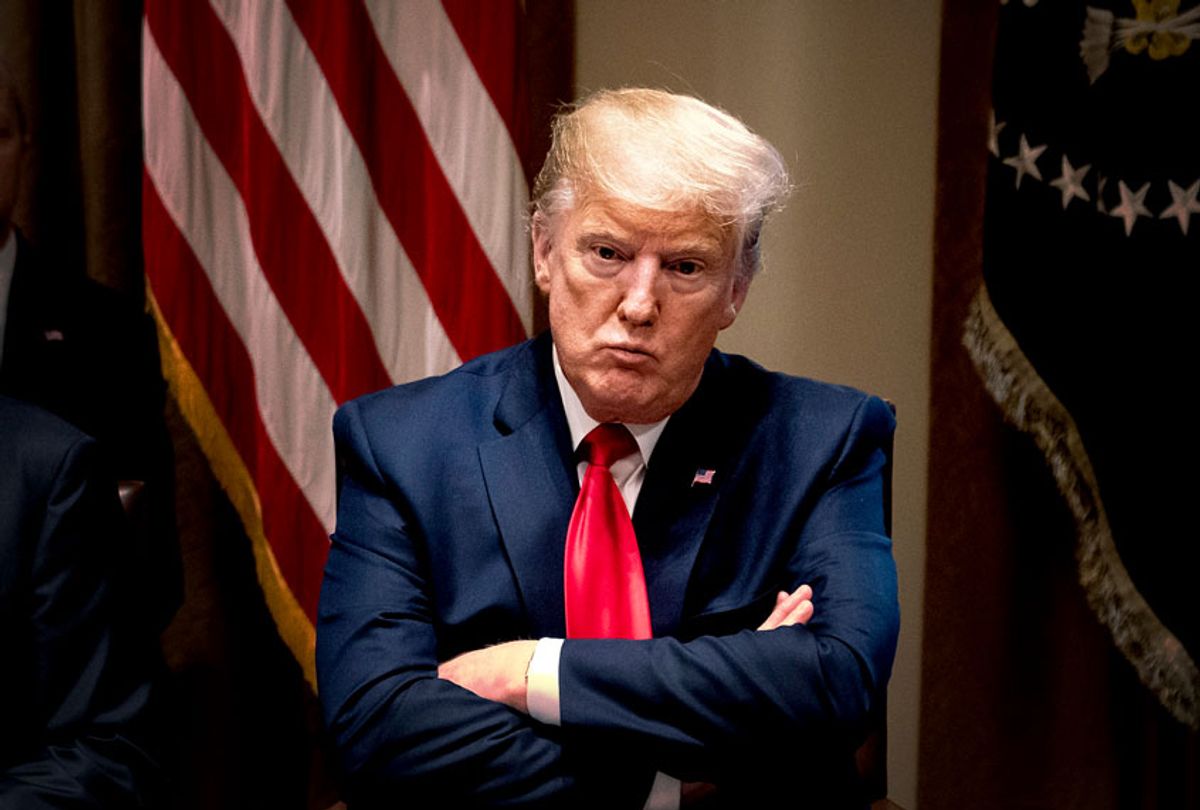Congressional Republicans have remained remarkably unwavering in their fealty to President Trump. But even as they march lock-step right into the middle of a global health outbreak — mocking the crisis while simultaneously self-quarantining — a number of GOP lawmakers have broken with the president over his latest foreign policy bungle.
On Monday, U.S. officials confirmed that the initial troop withdrawal out of Afghanistan had begun, with aims to remove all U.S. troops within 14 months, which would bring 18 years of intermittent combat operations to an end. The U.S. is following through on its part of a peace agreement with the Taliban to reduce its troop strength in Afghanistan — even after confirming that the Islamist militant network has already reneged on its pledges.
Ending America's longest and most unpopular war would undoubtedly be a good thing for a president facing a panicked economy and looming pandemic. Afghan and American forces killed more civilians in 2019 than the Taliban did, according to a UN report. Within hours of signing a peace deal with the Taliban late last month, however, this supposedly historical achievement by the Trump administration turned into a public embarrassment.
Less than 24 hours after the peace deal was signed, Afghan President Ashraf Ghani, whose government was not involved in the agreement, rejected the Taliban's main demand: the release of 5,000 Taliban prisoners. It was then revealed that Defense Secretary Mark Esper had approved the withdrawal of U.S. troops before a weeklong truce, a crucial test for the Taliban, was even completed. Then, just hours after President Trump said he'd had a "very good talk" with the Taliban's chief negotiator, Abdul Ghani Baradar, who was released from a Pakistani prison so he could sign the deal, U.S. warplanes bombed a Taliban position in support of Afghan troops.
"We had a good conversation. We've agreed there's no violence. We don't want violence," Trump told journalists last Tuesday, after the Taliban publicized the call before even White House officials were informed. Esper defended the U.S. airstrikes against the Taliban as allowed under the peace agreement. "It's the commitment I made to the Afghans when I was [in Kabul] on Saturday, that we would continue to defend the Afghans, support them."
The cascade of confusing news and continued violence surrounding the much-needed peace deal has been enough to shake even the most compliant Republicans from their unquestioning Trump loyalty.
"I share the concerns of President Ghani on the release of 5,000 trained terrorists," Rep. Joe Wilson, R-S.C., a member of both the House Armed Services and Foreign Affairs committees, told The Hill. "It's just so dangerous and irresponsible, so I'm not in favor of the agreement."
The agreement includes a timeline for a full U.S. withdrawal from Afghanistan, if the Taliban lives up to its commitments, and plans for the U.S. military to share information with the Taliban. Under the pact, the U.S. would reduce its forces to 8,600 from 13,000 in the next three to four months. But while Taliban leaders have read the full deal, the Trump administration has classified key components, leading Republicans to call for increased transparency.
"Any deal that the United States would contemplate entering into with the Taliban should be made public in its entirety," complained Rep. Liz Cheney, R-Wyo. Consistent with her credentials as a leading GOP war hawk, Cheney, the No. 3 Republican in the House, criticized the Trump administration's secret plan to abandon a war. The peace agreement, she warned, may be lopsided in the Taliban's favor without a verification mechanism. "I've expressed my serious concerns about the lack of verification mechanism, about the commitment and the agreement that we would go to zero and primarily about the fact that what we have here are a number of promises by the Taliban."
She continued: "Many of them are promises that have been made before, and I think that the decisions about American troop levels in Afghanistan have to be made based on America's national security interests, not based on empty promises from the Taliban and an agreement that doesn't have any disclosed verification mechanism."
Rep. Mac Thornberry of Texas, the top Republican on the House Armed Services Committee, questioned whether the details of the deal are "just window covering for a withdrawal." Even Trump's most loyal backer in the Senate, Lindsey Graham of South Carolina, has reportedly been urging the president to leave a contingent of U.S. special operations forces and CIA paramilitary officers in Afghanistan.
"The worst thing that can happen for the Trump administration is to push a reconciliation progress of dialogue and outcome, beyond what the market will bear," Graham told reporters last week.
Of course, it is hard to imagine that Republicans' criticism of such a deal would be as muted under a Democratic administration. After all, the Trump administration brokered a deal with the Taliban — an unelected, militant theocratic group — without involving the actual elected government of Afghanistan, a sovereign nation, even agreeing to release Taliban prisoners from Afghan jails. By contrast, just recall how Republicans and right-wing media reacted in 2014 when Barack Obama released five Taliban fighters from Guantánamo Bay in exchange for U.S. Army soldier Bowe Bergdahl, who had been held captive for five years.



Shares